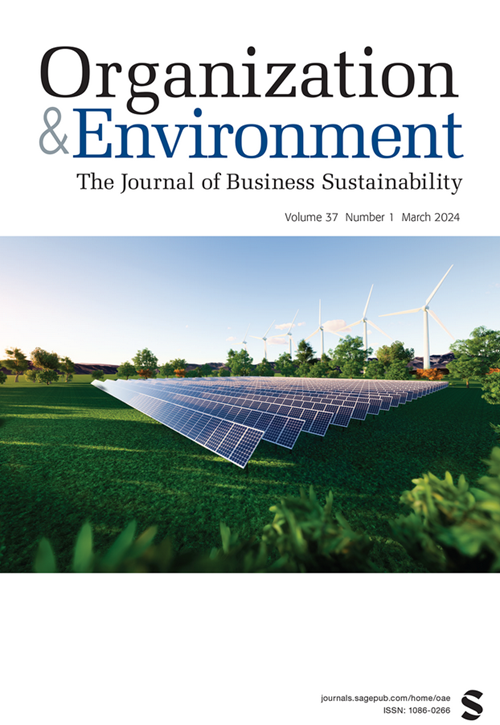Transitioning to a Circular Economy: Paradoxical Tensions of the Circular Business Model
IF 7.3
4区 管理学
Q1 ENVIRONMENTAL STUDIES
引用次数: 0
Abstract
The circular economy is seen as a way to replace the dominant linear business models, which are based solely on increasing economic value. However, organisations transitioning to a circular business model usually face multiple tensions arising from the paradoxical relationship between achieving circularity and creating economic value. Therefore, we combine the literature on circular business models and paradox theory to systematise knowledge on paradoxical tensions that occur while transitioning to circular business model. Following an abductive approach, the research methodology employs semi-structured interviews and observation in the cross-sectorial manufacturing context. The research results allow us to identify novel insights into organisational-level tensions, namely, goal setting, performance orientation, compliance, in-network collaboration, and innovation adoption. In addition, we define the concept of a strategic paradox in the circular economy, which acknowledges the tension between true circular products and products as usual.向循环经济过渡:循环型商业模式的矛盾张力
循环经济被认为是取代以增加经济价值为唯一基础的主流线性商业模式的一种方式。然而,正在向循环型商业模式转型的组织通常面临着多种矛盾,这些矛盾来自于实现循环性与创造经济价值之间的悖论关系。因此,我们结合有关循环型商业模式的文献和悖论理论,对过渡到循环型商业模式过程中出现的悖论性紧张关系进行系统化研究。研究方法采用归纳法,在跨行业制造业背景下进行半结构式访谈和观察。研究结果使我们对组织层面的紧张关系,即目标设定、绩效导向、合规性、网络内协作和创新采用,有了新的认识。此外,我们还定义了循环经济中的战略悖论概念,即真正的循环产品与常规产品之间的矛盾。
本文章由计算机程序翻译,如有差异,请以英文原文为准。
求助全文
约1分钟内获得全文
求助全文
来源期刊

Organization & Environment
Multiple-
CiteScore
11.20
自引率
5.70%
发文量
19
期刊介绍:
Organization & Environment encourages informed discussion about the social roots and consequences of environmental problems and stimulates deeper reflection on the meaning and significance of the natural world. By critically examining the impact of human production and consumption systems on the natural environment, Organization & Environment develops new perspectives on organizations that encourage environmentally sensitive reflection, inquiry, and practice.
 求助内容:
求助内容: 应助结果提醒方式:
应助结果提醒方式:


